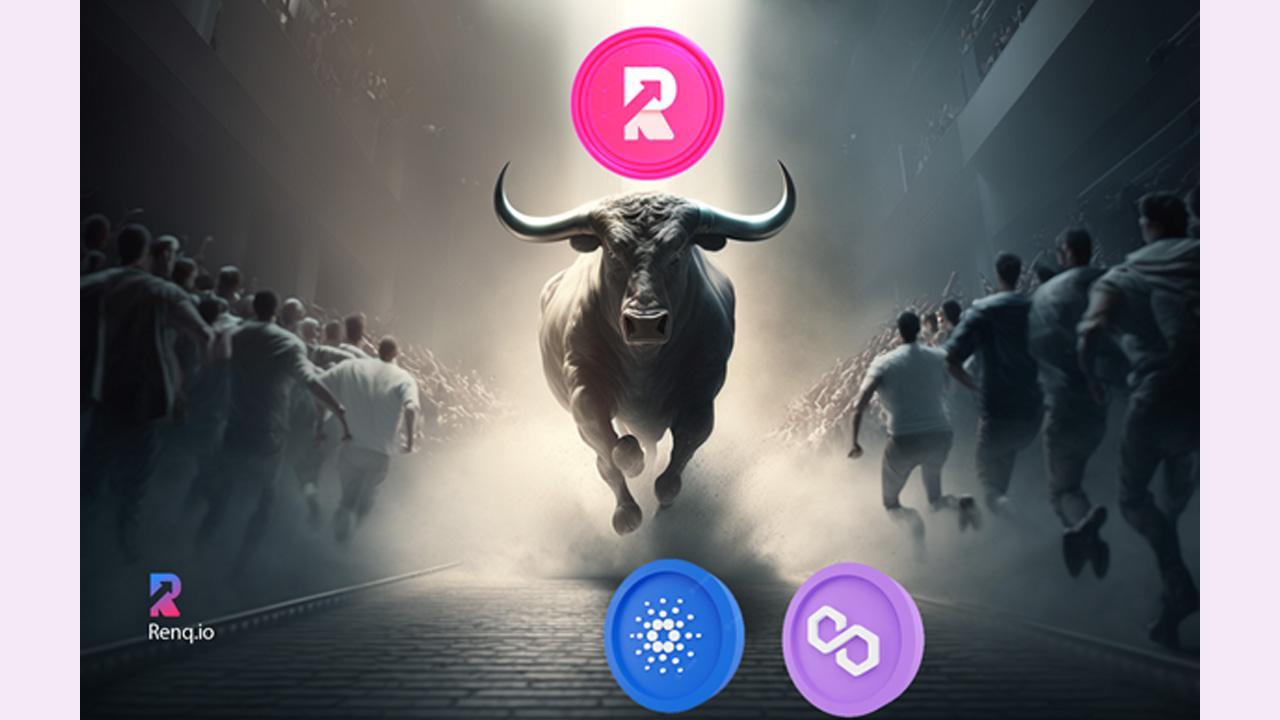RenQ Finance (RENQ) is a decentralized finance (DeFi) project that aims to connect all isolated blockchains and establish a cross-chain asset exchange network.

This innovative platform seeks to provide all necessary underlying support for the DeFi ecosystem, enabling every digital asset holder to experience a truly safe, free, and transparent DeFi service.
ADVERTISEMENT
As of now, RenQ Finance's presale has already raised over $17 million from over 25,000 holders, signaling the high demand for the project. With its final stage of presale already 90% sold out, RenQ Finance is set to launch in the coming months, and the project has already generated a lot of buzz within the cryptocurrency community.
In this article, we will explore the features that make RenQ Finance unique and promising, as well as how it stacks up against top DeFi projects like Cardano (ADA) and Polygon (MATIC).
What Makes RenQ Finance Unique?
RenQ Finance has a unique offering within the DeFi market, aiming to connect all isolated blockchains and establish a cross-chain asset exchange network. This means that RenQ Finance will allow users to exchange assets across multiple blockchains seamlessly. By doing so, RenQ Finance aims to provide a comprehensive, secure, and decentralized platform that offers high-quality services to the DeFi ecosystem.
In addition, RenQ Finance offers a no-tax policy, a redistributive system rewarding long-term stakers, and a burning mechanism to maintain the scarcity of the RenQ token. This unique tokenomics system is designed to incentivize holding, promote liquidity, and increase the chances of long-term success.
RenQ Finance also boasts a talented team of developers, marketers, and advisors that bring a wealth of experience and expertise in the blockchain and financial sectors.
Click Here to Join RenQ Finance (RENQ) Presale.
How RenQ Finance Compares to Cardano and Polygon
Cardano (ADA) and Polygon (MATIC) are two of the most well-known DeFi projects globally. Both projects have established a strong reputation and attracted a large number of users and investors in the past year.
Cardano is a decentralized platform that aims to provide a more secure, transparent, and sustainable infrastructure for decentralized applications (dApps). Cardano also uses a proof-of-stake (PoS) consensus algorithm, which is designed to consume less energy and be more environmentally friendly than traditional proof-of-work (PoW) algorithms.
Polygon, on the other hand, is a layer-two scaling solution that aims to address the scalability issues facing the Ethereum network. Polygon provides an infrastructure for building and connecting Ethereum-compatible blockchain networks, enabling fast and low-cost transactions.
RenQ Finance, while still a young project, has the potential to compete with both Cardano and Polygon. RenQ Finance's unique offering of a cross-chain asset exchange network sets it apart from other DeFi projects, making it a promising contender in the market.
Furthermore, RenQ Finance's unique features, governance system, and road maps could potentially attract more users and investors, leading to increased liquidity and a higher token value.
Conclusion
RenQ Finance is a promising DeFi project with a unique offering that sets it apart from other projects in the market. With its final stage of presale already 90% sold out and over 25,000 holders, RenQ Finance is gaining momentum and generating excitement within the cryptocurrency community.
While it's still too early to predict the success of RenQ Finance, its innovative platform, talented team, and unique tokenomics system make it a project worth keeping an eye on. If RenQ Finance can execute its vision successfully, it has the potential to compete with top DeFi projects like Cardano and Polygon and carve out a niche in the decentralized finance ecosystem.
Click Here to Buy RenQ Finance (RENQ) Tokens.
Visit the links below for more information about RenQ Finance (RENQ):
Website: https://renq.io
Whitepaper: https://renq.io/whitepaper.pdf
“Crypto products and NFTs are unregulated and can be highly risky. There may be no regulatory recourse for any loss from such transactions.”
 Subscribe today by clicking the link and stay updated with the latest news!" Click here!
Subscribe today by clicking the link and stay updated with the latest news!" Click here!







